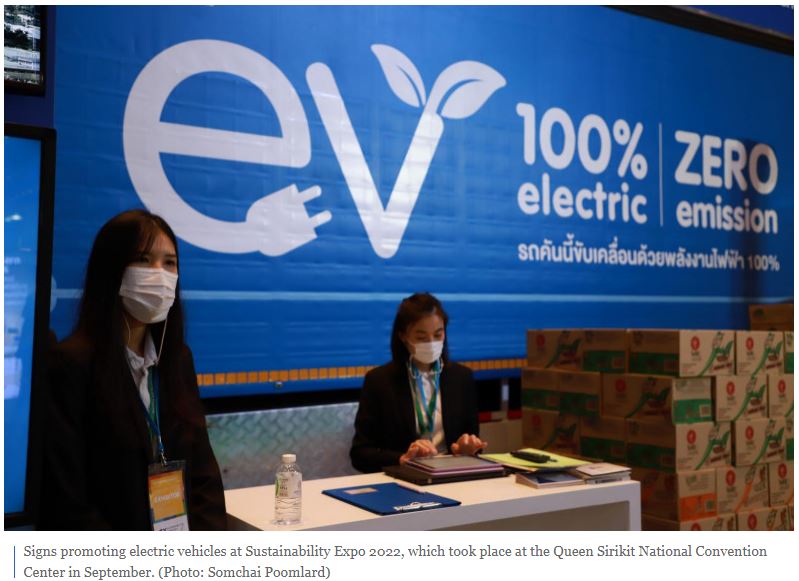Thailand predicted to fail on EV target
Thailand is likely to miss its ambitious target of electric vehicles (EVs) comprising 50% of locally made vehicles by 2030 for a variety of reasons, notably high energy prices and limited EV charging facilities, says global management consultancy Arthur D. Little.
The company expects EVs to make up only 7% of Thailand’s locally made vehicles by the target date, said Akshey Prasad, senior engagement manager of Arthur D. Little Southeast Asia.
“We made a realistic prediction based on our research and factors used for the calculation,” he said.
The prices of renewable energy and charging services remain high in Thailand, while the number of EV charging stations is insufficient to serve EV drivers, said Mr Prasad.
Unlike Indonesia, which has abundant nickel, a key element in making batteries, Thailand does not have this raw material to draw foreign investors, he said.
Thailand has zinc, which can be used to make batteries, but it needs to develop technology to make use of this element, said Mr Prasad.
“Thailand can partner with China, Japan or Australia to use zinc as a raw material for battery production. This will increase the country’s competitiveness,” he said.
Another factor that can slow the growth of the EV industry both in Thailand and other countries is the prolonged global semiconductor shortage.
“Many global car makers have delayed their EV production plans because of chip scarcity. We expect the shortage to ease within 2-3 years,” said Mr Prasad.
He was speaking as Arthur D. Little unveiled on Tuesday its 2022 Global Electric Mobility Readiness Index (GEMRIX), which compares market conditions for EVs and internal combustion engine-powered cars among 15 countries.
Thailand ranked ninth in terms of market readiness for EV adoption, said Andreas Schlosser, a partner in Arthur D. Little’s Global Automotive and Manufacturing Group.
EV usage has been on the rise worldwide over the last two years. Thailand is categorised as an emerging EV market, along with the US, Japan and the United Arab Emirates, with scores between 40 and 60, according to GEMRIX.
Despite the Thai government’s measures to stimulate production and consumption of EVs, EV adoption rates remain low, said the consultancy.
The firm believes the government will most likely miss its target of 1.12 million zero-emission vehicles produced in 2030.
Sales of EVs in Thailand are expected to increase from 1,572 units in 2020 to 831,161 units by 2030.
Source: https://www.bangkokpost.com/business/2449335/thailand-predicted-to-fail-on-ev-target


 English
English




